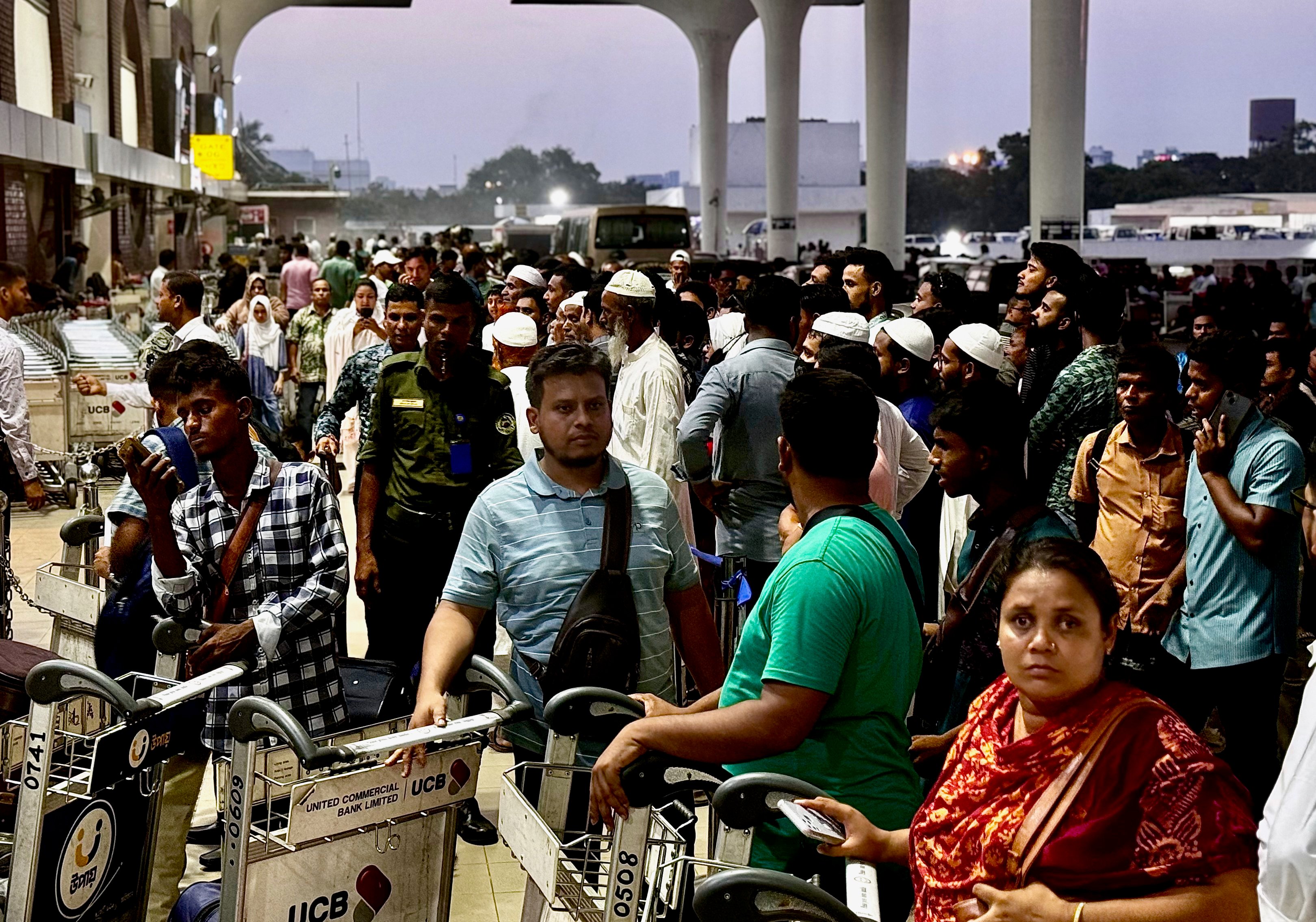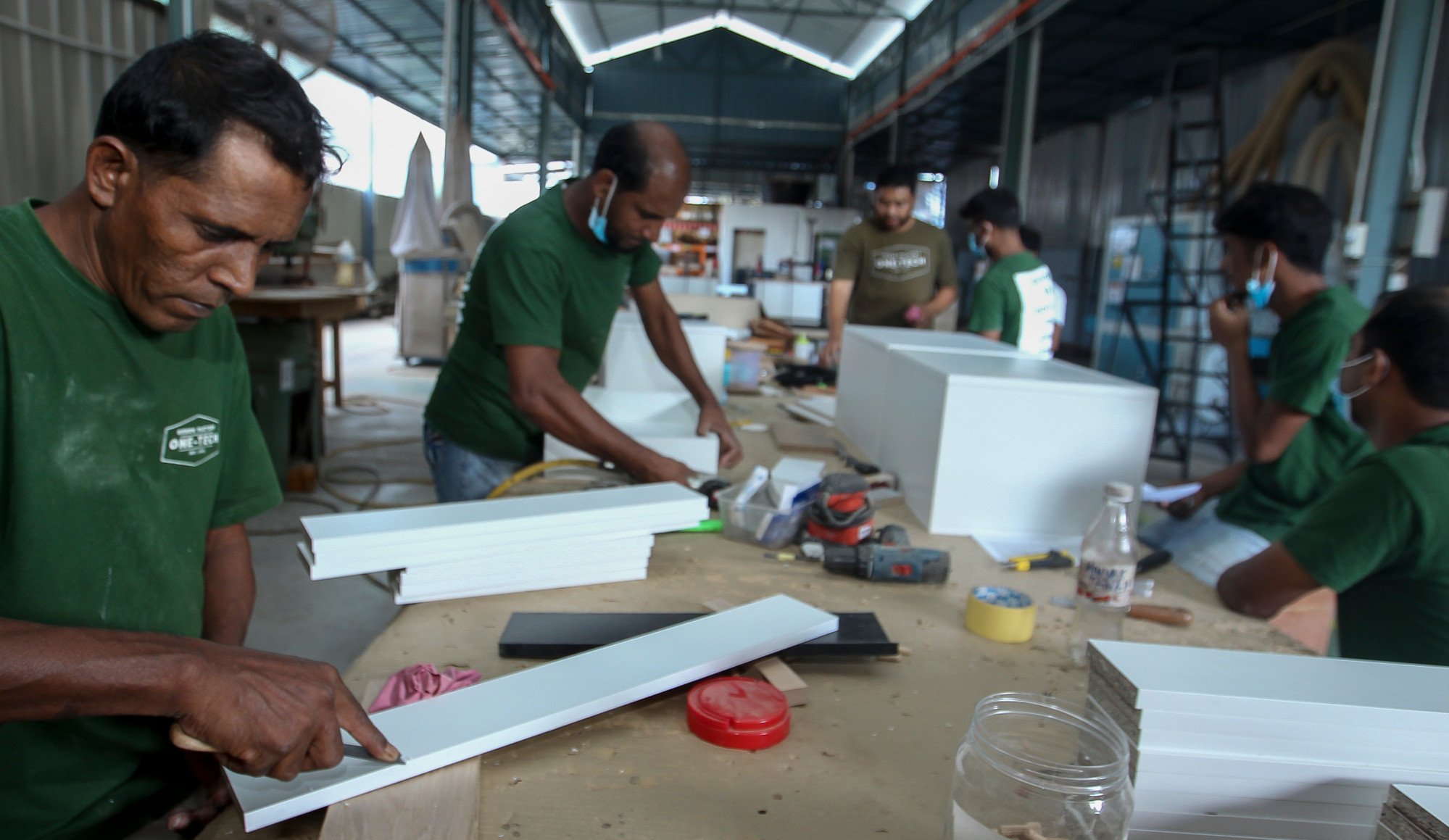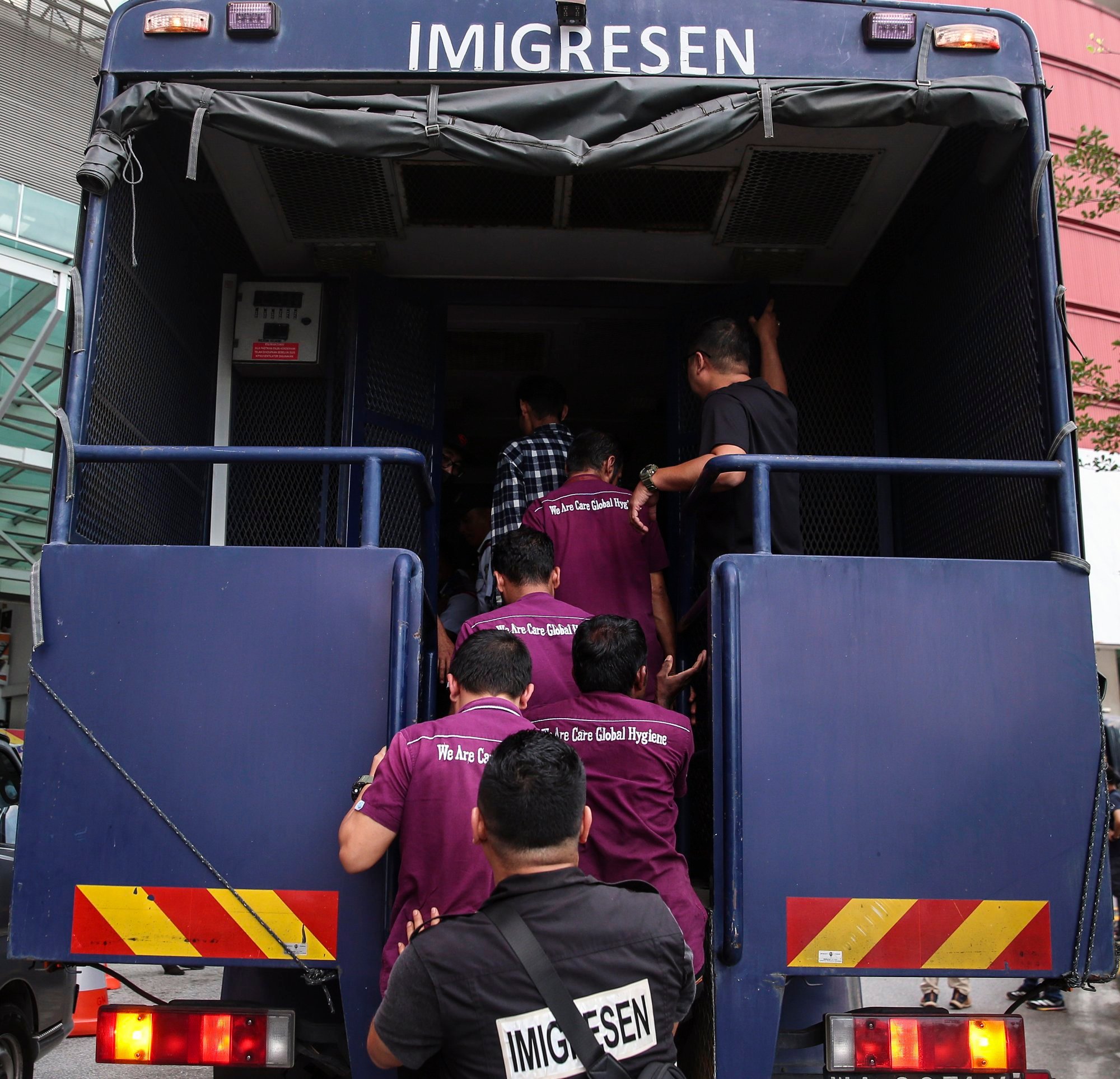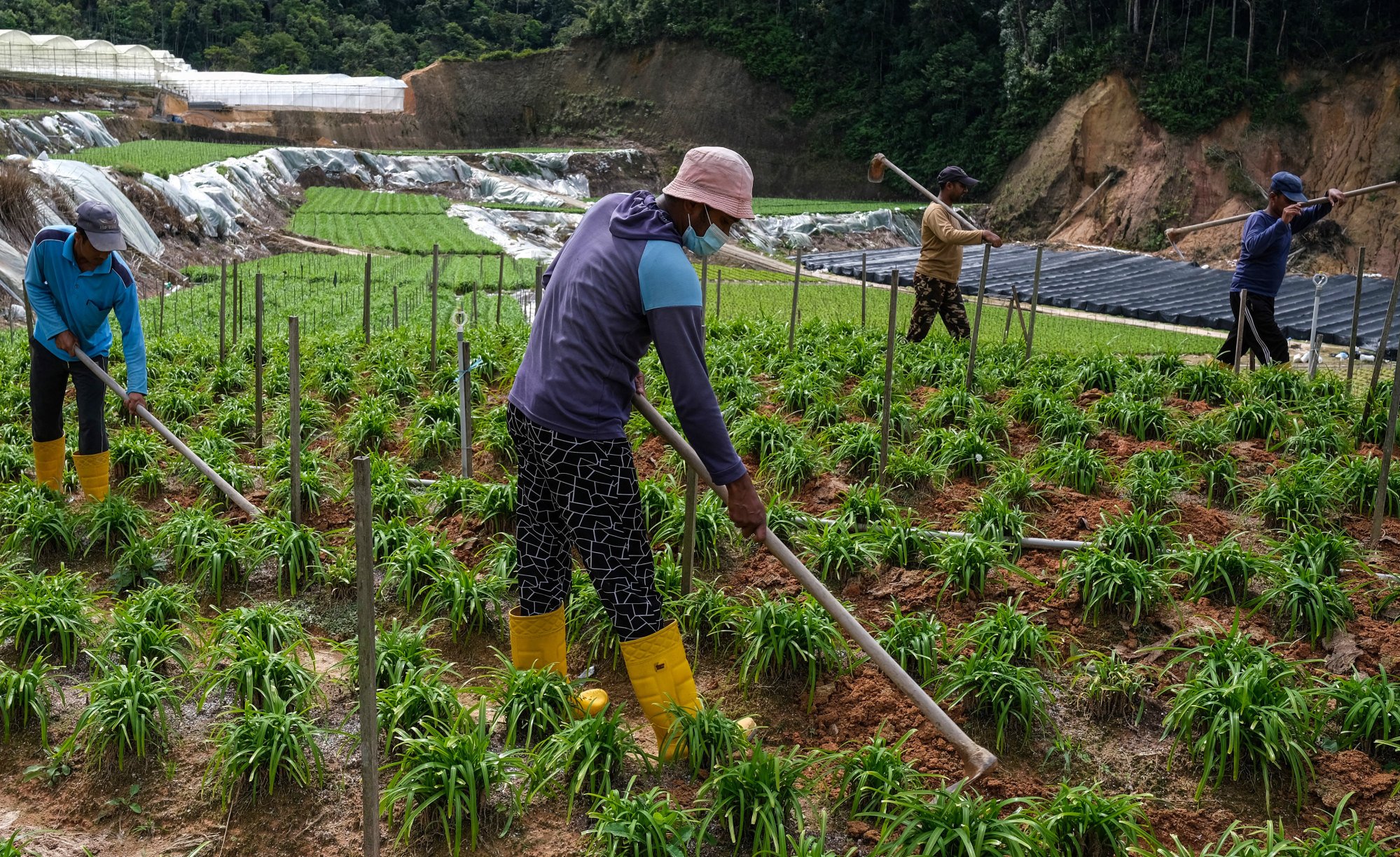Malaysia, Bangladesh urged to act on labour trafficking before ending migrant worker freeze
‘Thousands’ of Bangladeshis are stranded without jobs in Malaysia after a hiring freeze forced them to overstay illegally, activists say

Rampant labour trafficking that left tens of thousands of Bangladeshis stranded without jobs in Malaysia must be addressed first before signing any deal to end a year-long freeze on entry for a fresh cohort of migrant workers, activist groups have warned.
Bangladesh, one of Asia’s poorest nations, sent as many as 450,000 people to work in the Southeast Asian country between 2021 and 2023, according to labour authorities in Dhaka, most staffing low-paid jobs on building sites, farms and restaurants.
But Malaysia imposed a freeze on new migrant hiring on May 31 last year, after a labour scam was uncovered, revealing Bangladeshi workers had been duped into paying up to US$5,000 to syndicates operating in both countries for jobs that did not exist.
That left many stranded in Malaysia, forced to overstay illegally, deep in debt and easy targets for exploitation in the country’s notorious black market for labour.
The labour scandal was so serious that UN experts stepped in to urge prosecution of the syndicates and “certain high-level officials” in both governments, who had allowed the scam to unfold, raking in hundreds of millions of dollars in fees.

Bangladeshi officials were due to meet with Malaysia’s Interior Minister Saifuddin Nasution Ismail and Human Resources Minister Steven Sim in Malaysia’s administrative capital of Putrajaya on Thursday in an effort to reopen the job market, according to a Bloomberg report.
Bangladesh, where inflation is around 10 per cent, needs the money sent home by its army of so-called remittance warriors, while Malaysia is desperate for people to work on farms, factories and restaurants – low-paying jobs which locals tend to shun.
But neither government has yet done enough to eliminate labour trafficking or protect victims of job fraud working in the shadow economy, said Glorene Das, executive director of Malaysia-based migrant workers rights group Tenaganita.
“At this critical juncture, we believe that no new intake of migrant workers should proceed until the rights and livelihoods of the thousands of workers already in Malaysia, many of whom remain jobless and undocumented, are fully addressed,” Das told This Week In Asia.
The situation was made worse as Malaysia treated trafficking victims as undocumented migrants, putting them at risk of criminal prosecution, she added.
Labour advocates say Malaysia has not done enough to deal with rampant corruption, official complicity and poor victim identification – highlighting the lack of successful prosecution of high-level traffickers or officials found to be complicit in the criminal activity.
In one of the most high profile cases, a parliamentary committee announced last November that it would investigate the government’s decision to sign a contract with Malaysian company Bestinet to operate a digital foreign worker management system.

Bangladeshi police had last year sent a request to extradite two individuals, including Bestinet founder Aminul Islam, suspected to be involved in money laundering, extortion and trafficking of Bangladeshi workers headed to Malaysia. Aminul has denied the claims.
A parliamentary Public Accounts Committee in March found that the government’s deal with Bestinet did not follow due process, flagging a spike in payments by the government to Bestinet from 100 ringgit (US$23) to 215 ringgit for each online temporary work permit issued after they signed a contract last September. The committee’s findings, however, are not binding.
Last month, three immigration officers were arrested by the Malaysian Anti-Corruption Commission for allegedly raking in over 10 million ringgit in bribes as part of a “counter-setting” syndicate smuggling migrant workers past immigration check points. There has been no prosecution so far.
Malaysia’s government last month sent a letter to Dhaka asking it to review and withdraw “unsubstantiated allegations” of wrongdoing in labour migration between the two countries to help improve Malaysia’s rating in the annual US Trafficking in Persons (TIP) report, Bloomberg reported.
The letter by Azman Mohd Yusof, the secretary general of Malaysia’s human resources ministry, said that allegations of human trafficking and money laundering had “impacted the Malaysian reputation”.
Malaysia was upgraded to Tier 2 in the 2024 TIP report. The US State Department said that despite significant efforts to combat human trafficking, Malaysia still fell short of the minimum standards for eliminating the criminal activity.
‘3D jobs’
Migrant workers are a hot-button issue in Malaysia, where unemployment averaged at 3.3 per cent in 2024 and wages are stagnant, yet employers complain of understaffing despite a government effort to encourage the domestic workforce to plug the gaps.
Malaysia needs more than 500,000 workers for labour intensive jobs across the plantation and agriculture sector, construction, manufacturing and services, according to the Malaysian Employers Federation (MEF).

“The reality of foreign labour is based on the fact that most of them work in 3D jobs,” MEF President Syed Hussain Said Husman said, referring to dirty, dangerous and difficult jobs.
“What we need to do is to ensure the right amount [of workers] comes in and on completion, the right amount goes out.”
The hiring freeze had another knock-on effect, with a shortfall of registered workers forcing some employers to look beyond legal avenues, according to the National Association of Employment Agencies (Pikap).
“On one side, the government wants to lower the foreign worker intake to increase local employment … but it has ended up opening up opportunities for illegal workers,” Pikap President Fiona Low said.
Many small and medium enterprises have ended up hiring refugees, like those from Myanmar’s ethnic Rohingya community. Malaysia does not recognise refugee status, and classifies them as undocumented migrants. The country hosts nearly 115,000 Rohingyas fleeing persecution in Myanmar, according to the UN Refugee Agency.
Labour groups urge the government to allow Bangladeshi workers who missed last year’s deadline to enter the country legally to work as a stopgap while the two countries finalise terms for reopening Malaysia’s labour market.